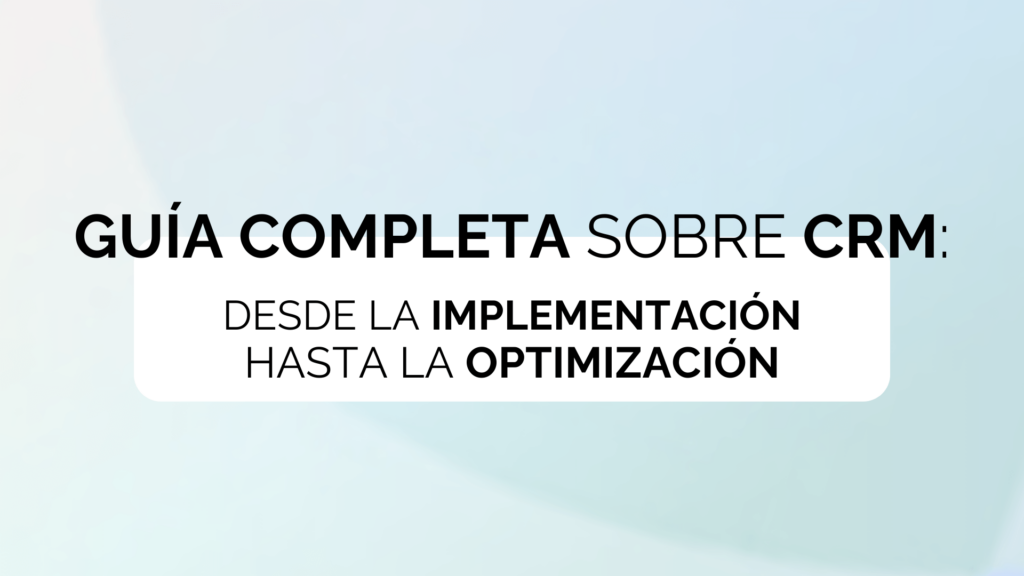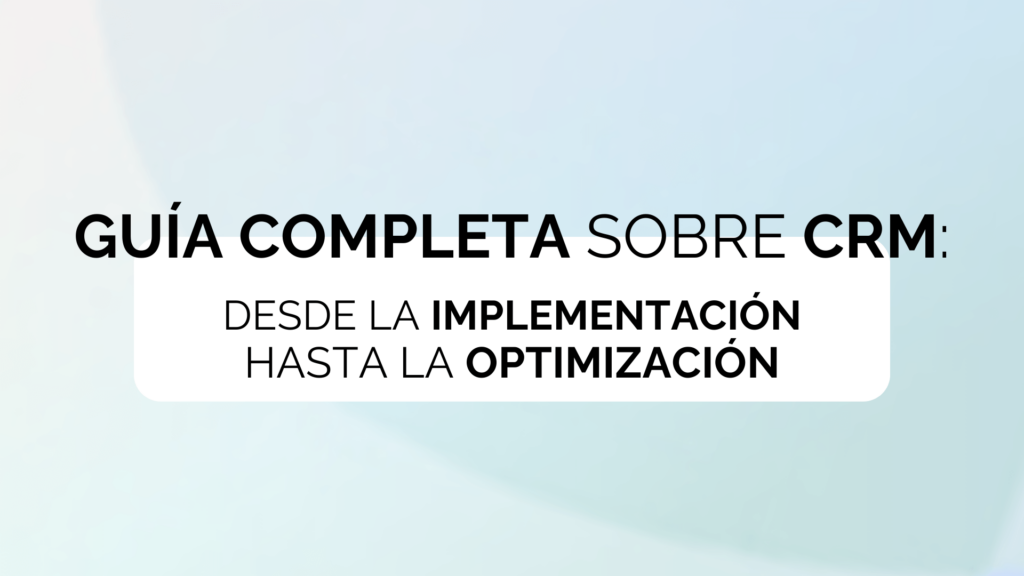Complete Guide to CRM: From Implementation to Optimisation

Previously in this blog, we were talking about the key role played by CRM in aspects such as personalisation and the multichannel at the present time. However, to achieve successful results we must make it work optimally and efficiently.

In this post, we will take an in-depth look at the world of CRM. First, we will discover what is a CRM y why it is an indispensable tool for any company. Below, we will guide you step-by-step to a successful implementation. In addition, we will also look at how you can get the most out of it, and finally, we will highlight the benefits of managing a CRM well, which will allow you to improve your customer relationships and make your business run more efficiently.
What is CRM and why is it important for companies?
A CRM is a system that allows companies to manage and analyse customer interactions and data throughout the customer lifecycle. The main objective of a CRM is to improve customer relationships, helping customer retention and promoting sales growth.
Companies that successfully implement CRM can achieve greater operational efficiency, improve customer satisfaction and increase revenue.
Step one: Implementation
Choose the Appropriate CRM for your company is the first essential step. Here are some points to consider before choosing a CRM:
- Company size and needs: CRM should be tailored to the size of your business and your specific needs.
- Features and functionality: Make sure the CRM offers the functionalities you need, such as contact management, marketing automation, data analysis, etc.
- Scalability: Choose a CRM that can grow with your business.
- Integrations: Check that the CRM integrates well with other tools and systems you already use.
- Ease of use: An intuitive and easy-to-use CRM makes it easy for your team to adopt.
Next, we must ensure that the implementation is done properly. The recommended steps are as follows:
- Define clear objectives: Before we start with the implementation, we need to establish clearly what we want to achieve with the CRM.
- Engaging stakeholders: Include key stakeholders from the outset to ensure that their needs and expectations are considered.
- Planning data migration: Ensure that existing data is transferred accurately and securely to the new system.
- Training the team: Provides adequate training to all CRM users to ensure that they know how to use the CRM correctly.
- Monitor and adjust: After implementation, it monitors CRM usage and makes adjustments as necessary to optimise its performance.
Step 2: Optimisation
A well-integrated CRM can greatly enhance your operations. Consider integrating your CRM with:
- Marketing automation tools: To synchronise marketing campaigns and customer data. At Digital ResponseWe offer advanced marketing automation solutions that can help you in this process.
- E-commerce platforms: To get a 360° view of customer interactions and buying behaviour.
- Customer service systems: To provide more personalised and efficient support.
In addition, the real potential of a CRM lies in its ability to collect and analyse customer data. Here are some ways in which this data can be used:
- Customer segmentation: Divide your customers into segments based on their behaviour, preferences and needs to send them more personalised messages. Our email marketing service can help you create segmented campaigns.
- Predictive analytics: Use historical data to predict future behaviour and adjust your strategies accordingly.
- Task automation: Use data to automate repetitive tasks, freeing up time for your team to focus on more strategic activities.
In short, a well-managed CRM can transform your business. By centralising all your customer information, improving internal and external communication, and providing valuable data for decision making, a CRM allows you to offer an excellent customer experience. Therefore, this not only improves customer satisfaction and retention, but also helps you to grow your sales and run your business more efficiently.
Implementing and optimising a CRM requires investment and effort, but the long-term benefits ultimately justify it.. If you have not yet adopted a CRM or if you feel that your current system is not delivering the expected results, now is the perfect time to review your strategies and consider optimisation.